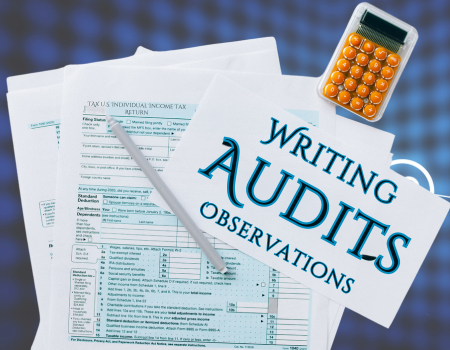Call us: +1-855-202-3299
Email: [email protected]
How to Write Effective Audit Observations: The Principles for Bullet Proofing Your Audit Findings
Speaker: Jonnie Keith
Speaker Designation: Chief Audit Executive

Call us: +1-855-202-3299
Email: [email protected]
Speaker: Jonnie Keith
Speaker Designation: Chief Audit Executive

This webinar will provide the basic principles for writing effective audit observations. The audit observations represent the end result of weeks of reviews, analyses, interviews and discussions. It is used to provide important information to management on the area you reviewed. And, more importantly, it provides details to management on significant issues that need to be addressed. How well you communicate that information is critical to getting management’s acceptance of your findings and their agreement with your recommendations. And ultimately, this demonstrates the value you add to the company and enhances your chances for promotions and greater salary increases.
Preparing for and conducting an audit are the initial components of the audit process; writing a good audit report is the final step. Communicating the results of an audit is just as important as performing it. However, auditors are often frustrated when their audit reports are not taken seriously or used effectively because they do not provide meaningful information.
Even the best-planned audit will do little good if results are not effectively communicated to the audit client to make the needed fixes. This webinar will discuss how to write audit observations so that whether it’s used internally or externally, the audit report conveys the proper information.
The key to writing an effective audit observation is having a comprehensive structured process.The Institute of Internal Auditors recommends a process known as the 5Cs:
As you develop conclusions, findings, and recommendations, you must present them to your client in a logical, complete, and objective way.This process provides an easy way to consistently develop and present your observations in a timely manner. The components in this process include all the information you will need to inform and persuade. It allows you to present your findings to your reader in a logical, complete, and objective manner and, thus, enhances the chances of the client’s buy-in and their agreement to your recommendations.
This process can also serve as a basis for review by audit supervisors and managers.It is supported by your work papers and gives complete and clear details of your analysis and the basis for your findings. Writing audit observations effectively brings issues to management’s attention that needs to be addressed. How well you communicate that information is critical to getting the results you are seeking.
Review the following recommended observation standards in detail:

Mr. Jonnie Keith has over 50 years of audit experience and served as the Chief Audit Executive for the Metropolitan Atlanta Rapid Transit Authority (MARTA) for 12 years before his retirement in 2012. His other audit experience includes serving as Operational Audit Manager for five years and was a Senior Auditor in the Contract Compliance Audit Branch at MARTA. He was also a Senior Auditor at Norfolk Southern Railway, and a Bank Examiner at the Federal Reserve Bank of Atlanta.
He has a degree in Economics from Clark Atlanta University. His certifications include Certified Internal Auditor (CIA), Certified Fraud Examiner (CFE), and Certified Government Auditing Professional (CGAP). Mr. Keith has been married over 50 years. He also co-authored a book with his wife on marriage entitled “Tied Together – The Marriage Trinity”. He has two daughters and five grand childrens.